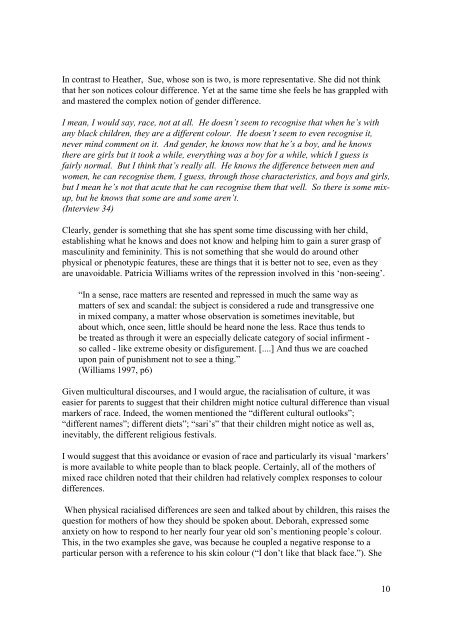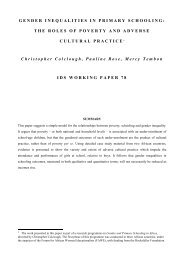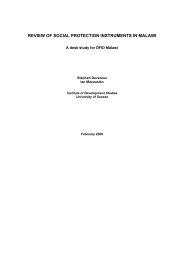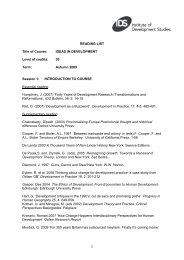1 'Troubling race. Using Judith Butler's work to think about racialised ...
1 'Troubling race. Using Judith Butler's work to think about racialised ...
1 'Troubling race. Using Judith Butler's work to think about racialised ...
You also want an ePaper? Increase the reach of your titles
YUMPU automatically turns print PDFs into web optimized ePapers that Google loves.
In contrast <strong>to</strong> Heather, Sue, whose son is two, is more representative. She did not <strong>think</strong><br />
that her son notices colour difference. Yet at the same time she feels he has grappled with<br />
and mastered the complex notion of gender difference.<br />
I mean, I would say, <strong>race</strong>, not at all. He doesn’t seem <strong>to</strong> recognise that when he’s with<br />
any black children, they are a different colour. He doesn’t seem <strong>to</strong> even recognise it,<br />
never mind comment on it. And gender, he knows now that he’s a boy, and he knows<br />
there are girls but it <strong>to</strong>ok a while, everything was a boy for a while, which I guess is<br />
fairly normal. But I <strong>think</strong> that’s really all. He knows the difference between men and<br />
women, he can recognise them, I guess, through those characteristics, and boys and girls,<br />
but I mean he’s not that acute that he can recognise them that well. So there is some mixup,<br />
but he knows that some are and some aren’t.<br />
(Interview 34)<br />
Clearly, gender is something that she has spent some time discussing with her child,<br />
establishing what he knows and does not know and helping him <strong>to</strong> gain a surer grasp of<br />
masculinity and femininity. This is not something that she would do around other<br />
physical or phenotypic features, these are things that it is better not <strong>to</strong> see, even as they<br />
are unavoidable. Patricia Williams writes of the repression involved in this ‘non-seeing’.<br />
“In a sense, <strong>race</strong> matters are resented and repressed in much the same way as<br />
matters of sex and scandal: the subject is considered a rude and transgressive one<br />
in mixed company, a matter whose observation is sometimes inevitable, but<br />
<strong>about</strong> which, once seen, little should be heard none the less. Race thus tends <strong>to</strong><br />
be treated as through it were an especially delicate category of social infirment -<br />
so called - like extreme obesity or disfigurement. [....] And thus we are coached<br />
upon pain of punishment not <strong>to</strong> see a thing.”<br />
(Williams 1997, p6)<br />
Given multicultural discourses, and I would argue, the racialisation of culture, it was<br />
easier for parents <strong>to</strong> suggest that their children might notice cultural difference than visual<br />
markers of <strong>race</strong>. Indeed, the women mentioned the “different cultural outlooks”;<br />
“different names”; different diets”; “sari’s” that their children might notice as well as,<br />
inevitably, the different religious festivals.<br />
I would suggest that this avoidance or evasion of <strong>race</strong> and particularly its visual ‘markers’<br />
is more available <strong>to</strong> white people than <strong>to</strong> black people. Certainly, all of the mothers of<br />
mixed <strong>race</strong> children noted that their children had relatively complex responses <strong>to</strong> colour<br />
differences.<br />
When physical <strong>racialised</strong> differences are seen and talked <strong>about</strong> by children, this raises the<br />
question for mothers of how they should be spoken <strong>about</strong>. Deborah, expressed some<br />
anxiety on how <strong>to</strong> respond <strong>to</strong> her nearly four year old son’s mentioning people’s colour.<br />
This, in the two examples she gave, was because he coupled a negative response <strong>to</strong> a<br />
particular person with a reference <strong>to</strong> his skin colour (“I don’t like that black face.”). She<br />
10

















